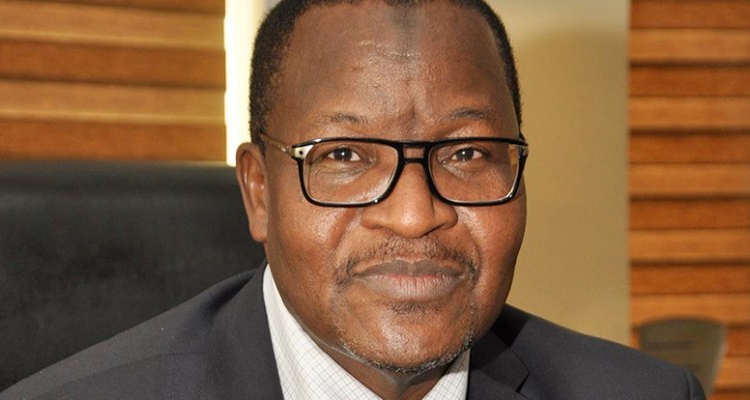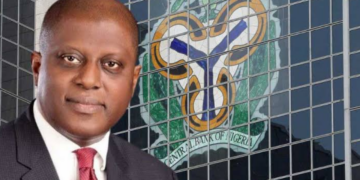The world has always been significantly shaped by technology, but in recent years, progress has sped up at a never-before-seen pace. As a matter of fact, the world is in the era of tech disruptions.
For instance, the 5th Industrial Revolution powered by 5G Networks is characterized by disruptive technologies which have attributes that are recognizably superior.
Examples of such disruptive technologies include Artificial Intelligence (AI), Machine Learning (ML), Internet of Things (IoT), Blockchain Technology, Virtual Reality (VR), Augmented Reality (AR), and other emerging technologies which have demonstrated the potential of transforming industries and business models.
Nigeria is not left out, as the Nigerian Communications Commission (NCC) is at the center of the technology disruptions happening in the country today.
Through its Strategic Vision Plan (2021–2025), a roadmap for the future, which guides the Commission‘s efforts to harness this power of technology and drive positive change in Nigeria, NCC has played a crucial role in creating an enabling environment for innovation, investment, competition, growth, and development of the sector.
Also, the Aspire 2024, a strategic management plan, is a testament to NCC‘s commitment to leveraging technology and innovation to transform industries and drive positive change.
For instance, connectivity and broadband access lie at the heart of the Commission‘s strategic vision plan.
„We understand that a robust and pervasive telecommunications infrastructure is vital for driving socioeconomic development. By expanding network coverage and promoting the deployment of broadband infrastructure, we are bringing reliable and affordable internet access to every corner of Nigeria.
„This commitment is driven by our belief in the power of connectivity to bridge the digital divide, empower individuals and businesses, and drive inclusive growth,“ Danbatta said while giving his keynote speech at the Information Communication Technology (Conference 2023 ICTEL Expo).
This strategy has indeed paid off. As of May 2023, the number of telecom subscriptions was 227,179,946 with a Teledensity of 119 percent, and the telecom industry also contributed 14.13 percent in Quarter 1, 2023, to the Gross Domestic Product (GDP).
NCC has also prioritized consumer protection and privacy. „Our plan is not just about infrastructure; it also focuses on the needs and rights of consumers. We are dedicated to protecting consumer interests and ensuring the quality of service. Through our initiatives, we aim to enforce standards, improve service delivery, provide avenues for redress, and promote data privacy and cybersecurity. By promoting transparency, fair competition, accountability, and safety, we are creating an environment where consumers can confidently embrace the benefits of technology,“ NCC CEO disclosed.
Innovation and competition are central to NCC‘s vision, Danbatta said, adding that, „We understand that a vibrant telecommunications market drives innovation and spurs economic growth. By fostering a competitive environment, we encourage service providers to push boundaries, deliver cutting-edge solutions, and meet the evolving needs of Nigerians. Our strategic plan supports fair competition, market regulation, and measures to prevent anticompetitive practices, ensuring that the industry remains dynamic, responsive, and customer-centric.“
Spectrum management is another critical aspect of the Commission‘s strategic vision plan. To Danbatta, efficiently managing the limited radio frequency resources is essential for optimizing connectivity and promoting emerging technologies.
„Our plan outlines strategies for effective spectrum allocation, frequency planning, and utilization. We are committed to supporting the transition to new spectrum bands, such as 5G, to unlock the transformative potential of these technologies and enable new services and applications. As of May 2023, broadband subscription was 92,561,842 while broadband penetration was 48.49 percent,“ Danbatta revealed.
On digital skills and literacy, The CEO posited that NCC strategic vision plan places a strong emphasis on digital inclusion and universal access, adding that, „We believe that no Nigerian should be left behind in the digital age. To achieve this, we focus on promoting digital literacy, establishing community access centers, and extending telecom services to unserved and underserved areas. By empowering all Nigerians with digital skills and access, we are creating opportunities for socio-economic development and narrowing the digital divide.“
Danbatta recognized the importance of collaboration and stakeholder engagement, which are integral to the Commission plan‘s success. „We recognize that achieving our vision requires partnerships with industry players, government agencies, and international organizations. Through collaboration, we can leverage collective expertise, share best practices, and drive industry-wide initiatives that further the growth and development of the telecommunications sector in Nigeria,“ he further explained.
These strategies were put in place by the NCC to empower individuals, businesses, and communities to thrive in the digital age.
Danbatta fittingly puts it when he said, „Our strategic management plan is a testament to our commitment to leveraging technology and innovation to transform industries and drive positive change. By embracing tech disruption, we are empowering individuals, businesses, and communities to thrive in the digital age.“
No doubt, it is crucial for businesses to embrace innovation and adapt to the changing landscape, Danbatta said, even as he advised companies to be agile and willing to experiment with these emerging technologies, to gain a competitive advantage in their respective industries.
„Together, let us build a Nigeria where technology is a catalyst for inclusive growth, innovation flourishes, and the benefits of connectivity reach every Nigerian,“ he stated.
In the same vein, the director general, National Information Technology Development Agency (NITDA), Kashifu Inuwa, has charged Nigeria‘s tech innovators to employ the use of technology as a source of inspiration in their quest to disrupt businesses as the three capabilities they needed to achieve the feats are now readily available.
Inuwa, while delivering a keynote speech at 2023 ICTEL Expo, said the combination of ubiquitous data, unlimited connectivity, and massive processing power could give tech innovators the leverage to disrupt anything they can think of.
„As start-ups, you need to be able to pitch your product for a new company; for people to use it to solve problems. You need to use technology as a source of inspiration to disrupt businesses,“ he reiterated.
While citing the success story of Flutterwave, a FinTech company that now has a bigger capital base than some commercial banks, Inuwa maintained that the company saw a big gap and decided to fill it using technological solutions that connect business-to-business transactions. „So, you too can see the power of technology; it‘s not happening only in the developed western countries. Even in Nigeria, you can start your business, use technology to grow it,“ he added.
While encouraging businesses to think big as they think about the solution they want to provide, the DG affirmed that with the mindset they have to solve local problems, it can be expanded to solve global issues.
„That is the difference between just normal Small and Medium Enterprises and you. We call you startups because you use the power of technology to build your business and become Innovation-Driven Enterprises, (IDEs). This implies that you start small; how can you solve a local problem but with the mindset of taking it to the global stage. Technology can help you do that. You don‘t need to have a physical space to do that,“ he further explained.
He advised the participants to get ready for the future of work as there is going to be a talent deficit because of the aging population the western world is witnessing which Nigeria can fill because of the abundant talent and youthful population the country is blessed with, adding that „we have abundant talent; it‘s just for us to harness that talent.“
According to Inuwa, „the federal government is embarking on several initiatives to bridge the skill gap in the country, noting that the government has conducted a skill gap analysis to determine the kind of competencies required to build the country. It is also working on the Digital Literacy Framework which would soon be signed.“





